Breaking
- MENU
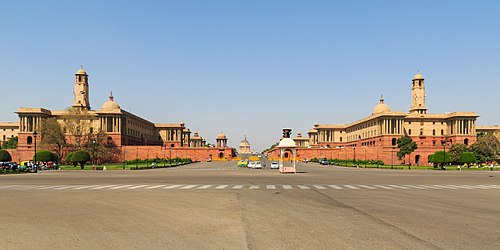
BILATERAL ISSUES
a. IRAQ
1. India’s position on the Referendum held in the Kurdistan Region of Iraq, New Delhi, October 17 2017
India has always remained steadfast in its support for Iraq in the on-going war against terrorism and in the efforts to uphold its national sovereignty and preserve the territorial integrity. We remain committed to a stable, peaceful, democratic and a united Iraq that is able to settle its internal affairs amicably through peaceful process of dialogue and other constitutional means, which serve the interest of the people of Iraq.
2. High-level visits on October 24-31 2017, Baghdad
i) General (Dr.) V. K. Singh (Retd), MoS for External Affairs visited Baghdad on October 24-31, 2017 to follow up on the whereabouts of the 39 missing Indian nationals. In Baghdad, he met Iraqi Foreign Minister Dr. Ibrahim Al Jaafari; NSA Faleh Al Fayyadh; Chief of Staff of Iraqi Armed Forces Othman Al Ghanimi; and Secretary General of the Council of Ministers of Iraq and Head of Crisis Unit Mahdi Al Alaq. He also visited Mosul, Badush, Tal Afar and nearby areas
ii) Dr. Adeelah Hmoud Hussein Saleem, Minister of Health of Iraq visited India from October 11-14, 2017. She was accompanied by Dr. Hazem Al Jumaily, Deputy Minister of Health and a large delegation. She met Anupriya Patel, Minister of State for Health and Family Welfare and officials of the Ministry of Commerce and Industry. She visited AIIMS, Medanta-The Medicity (Gurugram) and some other health related institutions in Delhi. Pharmexil organized an interactive session with the Iraqi delegation in New Delhi. The visit covered wide gamut of health related issues.
Source: Embassy of India, Baghdad
b. KUWAIT
3. Indian Distressed Labours in Kuwait Companies, Kuwait, 3 October 2017.
On 20th Sept, M J Akbar, Hon’ble MOS (External Affairs) strongly raised the problems of Indian workers in Kharafi National with Kuwaiti authorities. Hon’ble Minister Social Affairs & Labour of Kuwait has assured most immediate response and relief to our distressed workers.
2. As advised by Kuwaiti authorities, a list of 2,084 Indian workers in Kharafi National has been handed over to concerned Kuwaiti Authorities on 1st October, 2017. This list is available on Embassy’s website.
3. Distressed Indian workers who have not yet shared their particulars with labour wing (labour@indembkwt.rog) of Indian Embassy, may please send the requisite details immediately. Please avoid repetition so that there is no delay in submission of additional list(s).
4. All efforts are being made by Indian Embassy with close cooperation with Kuwaiti authorities to provide assistance to our distressed workers.
Source: Embassy of India, Kuwait
4. Cabinet approves signing of Memorandum of Understanding between Securities and Exchange Board of India (SEBI) and Capital Markets Authority (CMA), Kuwait, 11 October, 2017
The Union Cabinet chaired by Prime Minister Narendra Modi has given its approval for signing of a Memorandum of Understanding (MoU) by Securities and Exchange Board of India (SEBI) with Capital Markets Authority (CMA), Kuwait for mutual co-operation and technical assistance.
The MoU is likely to promote further development of economic links and cooperation between the two regulators, and aims at creating conditions for an effective development of securities markets in the two countries.
It would also contribute towards strengthening the information sharing framework between the two. It is expected to add value to overseas mutual cooperation and regulation activities of SEBI and CMA, Kuwait.
5. Tourism Festival in India, Kuwait, 15 October 2017.
A Tourism Festival (Paryatan Parv) is currently being celebrated in India from 5-25 October 2017 to promote visit of tourists from all over the world including Overseas Citizen of India/Persons of Indian origin and foreigners to visit places of historical, cultural, ancient architectural sites, places of scenic beauty, adventurous expeditions.Show-casing its varied and exquisite cuisine, traditions mixed with its remarkable achievements to modernize India through its commendable achievements in the areas of Information Technology, medical tourism, space research and innovations in other areas of science and technology. More than 7,000 kilometre long coastline of India with high Himalayan ranges, rivers, deserts and wildlife safaris, sanctuaries full of exquisite fauna and flora and other innumerable attractions are spread all over India to satisfy the varied tastes of any tourist as a lifetime experience. India is also home to the biggest film and entertainment Industry in the world including Bollywood, Tollywood etc.
Geographically being very close to Kuwait, it is very convenient and inexpensive for Indian expatriates living in Kuwaiti, Kuwaiti nationals and other foreign expatriates to visit India and have an experience of ‘Incredible India’ in all its splendour and glory during the coming months when the weather is cooler and balmy.
A number of Airlines including Air India, Kuwait Airways, Emirates etc. provide direct connections to various destinations of touristic importance at a very cheap and affordable price. Recently, Jazeera Airways dubbed as the “Low Cost Airline of the Year” is also starting its services to various destinations in India including Hyderabad, Mumbai, Kochi and Ahmedabad. All should avail these opportunities to have a first-hand experience of immense diversity of India in every aspect of its peoples’ lives and unique geography.
Indian Embassy has been issuing 5-year & 1-year multiple entry business visas and 6-month multiple entry tourist visas to all in Kuwait within 72 hours.
Source: Embassy of India, Kuwait
c. MOROCCO
6. Cabinet approves MoU between India and Morocco on cooperation in the field of water resources, New Delhi, 11 October 2017
The Union Cabinet chaired by the Prime Minister Narendra Modi has given its approval for signing of a Memorandum of Understanding (MoU) between India and Morocco on cooperation in the field of water resources.
The MoU intends to enhance cooperation in the field of water resources development and management within the framework of their expertise and their respective legislations. The domains of bilateral cooperation under this MoU include:
conception, realization and maintenance of the hydraulic infrastructure, notably big dams and water transfer projects;
integrated water resources management, i.e., conjunctive use of surface and ground water resources, enhancement of water use efficiency, resilience and adaptation to climate change, artificial recharge of aquifers, organizational, institutional and regulation aspects;flood and drought management;
sustainable development and management of ground water resources including recharge augmentation; and
harvesting and valuation of rainfall water and resilience and adaptation to climate
The cooperation also includes:
exchange of visits and missions of experts;
exchange of information on programs, publications, expertise and results of research in the field of water resources;
develop projects in domains mentioned above, in Morocco and India: develop partnership mechanism with the socio-economic actors in the two countries;
ensure reciprocal participation of experts to the water related events and projects;
and promote cooperation between Hydraulic Basin Agencies of the two countries with an aim to share the expertise on the implementation of the principles of integrated water resource management in the Hydraulic Basins.
The MoU also provides for setting up of a Joint Working Group(JWG) consisting of equal members from both the sides to monitor the activities to be carried out in fulfilment of the MoU. The Working Group shall hold its annual meeting alternatively in India and Morocco. In addition, the Working Group may interact at any time using telephone or video conferencing.
The cooperation, cantered on the scientific, technical and technological fields, will encourage the establishment/development of bilateral relations between public and private organizations concerning water resources of both the countries. While exchanging the expertise and experiences on latest techniques and technologies, both the countries can learn and improve their skills.
Background:
The Ministry of Water Resources, River Development and Ganga Rejuvenation has been envisaging bilateral cooperation with other countries in water resources development and management through sharing of policy and technical expertise, conducting of training courses, workshops, scientific and technical symposia, exchange of experts and study tours. Keeping in view the on-going India-Africa cooperation, it has been decided to have an agreement with Morocco to exchange experience and expertise in water resources.
d. OMAN
7. Indian Community in Oman Resolves to Join the Mission to build a New India, Muscat, 4 October 2017.
Indian community in Oman pledged to build a New India which is clean and free from poverty, corruption, terrorism, casteism and communalism by 2022. Over 200 representatives of various linguistic wings of Indian Social Club and around 100 Children from 6 Indian Schools in Muscat actively participated in the “New India Manthan (Reflection)” organized by the Embassy of India, Muscat, on 1st October 2017 to enable the Indian community in Oman to discuss on their concept and idea of New India and the ways to achieve it. The ‘New India’ is a mass movement launched by PM of India to build a ‘New India ‘by 2022 when India will celebrate 75 years of freedom and independence.
Addressing the gathering, H.E. Indra Mani Pandey, Ambassador of India to the Sultanate of Oman, said that although India has made tremendous progress since her independence in 1947, there are huge developmental and social challenges which the country needs to overcome. He stressed that the task of building a New India of our dreams could be achieved only through the collective efforts of the Government and the people of India, including Indians living and working in Oman. He appealed to the Indian Community in Oman to contribute individually and collectively to the noble goal of building a New India by 2022. He led the gathering in taking the pledge to build a New India which is clean and free from poverty, corruption, terrorism, casteism and communalism by 2022.
The New India Mission, which is to be realized with popular resolve "Sankalp se Siddhi” (Realization through Resolve), was launched on 09 August 2017 to by PM of India on the auspicious occasion of the 75th Anniversary of Quit India Movement. Speaking on the occasion, Prime Minister of India, Narendra Modi, said “Quit India was a landmark movement in our history. Inspired by Mahatma Gandhi’s clarion call of ‘Do or Die’ people across India actively pledged to devote themselves for India’s freedom. Today, on the 75th anniversary of the Quit India Movement, let us pledge to free India from dirt, poverty, corruption, terrorism, casteism, and communalism and create a ‘New India’ of our dreams by 2022” when India completes 75 years of its independence from Colonialism.
The ‘New India’ Mission epitomizes the participatory nature of democratic governance and seeks to benefit from momentum gathered through indomitable spirit of 1.25 billion Indians to create an India of their dreams by 2022. Government has invited people of India, at individual level as well as organizations level, to outline their vision of New India. In addition, various Ministries and Departments of Government, numerous educational institutions and civil society organizations in India have joined the Mission and are spreading awareness about it amongst the people of India. Millions of Indians have already pledged to build an India of their dreams.
The Embassy appeals to the Indian Community in Oman to join the ‘New India’ Mission by taking the Pledge to build a New India and contribute to its realization by 2022.
Source: Embassy of India, Muscat
8. International Day of Non-Violence Celebrated in Oman, Muscat, 4 October 2017.
Embassy of India, Muscat, in association with Raja Yoga Centre for Self-Development, celebrated the 10th UN International Day of Non-Violence on 02 October 2017 which was also celebrated as 148th birth anniversary of Mahatma Gandhi, Father of Nation. About 250 persons, including Ambassadors, members of diplomatic corps, prominent Omanis and members of Indian and other expatriate communities in Oman attended the celebration. The celebration was also joined by H.E. Sheikh Hilal Marhoon Salem Al Ma’amari, DG of West Asia Department, and HE Humaid Ali Al-Mani, DG of International Affairs Department, of Ministry of Foreign Affairs, who represented the Government of Oman.
Addressing the gathering, H.E. Indra Mani Pandey, Ambassador of India to the Sultanate of Oman, paid homage to Mahatma Gandhi, Lal Bahadur Shastri and other freedom fighters. He explained the historical roots of Mahatma Gandhi’s philosophy of non-violence and strategy of Satyagrahaand its continued relevance, more than ever, for creating a peaceful and harmonious world, based on the principle and practice of non-violence. He underlined that the basic tenets of Oman’s foreign policy of peaceful coexistence of nations, cooperation among them and negotiated settlement of disputes are based on the philosophy of non-violence as propounded by Mahatma Gandhi. He paid tributes to the visionary leadership of His Majesty Sultan Qaboos Bin Said Al Said, which has made Oman into a shining example of peaceful co-existence of people, societies and communities. Stressing the importance of adherence to the philosophy and strategy of non-violence, Ambassador called upon the people, as the world celebrates UN International Day of Non-Violence, to practice non-violence in their thoughts, speech and action, which will lead to a more peaceful and harmonious world.
United Nations General Assembly, on 15 June 2007, had passed a Resolution to celebrate 2nd October as the International Day of Non-Violence. The Resolution calls upon all members of the UN system to commemorate 2nd October in "an appropriate manner and disseminate the message of non-violence, including through education and public awareness."
Delivering the keynote address at the event, Jayanti Kripalani, Director (Europe & Middle East) of Brahma Kumaris World Spiritual University, said that we should look inwards and be peaceful and happy from inside, which would enable us to spread peace and happiness around us. She added that when each one of us makes a commitment to change our consciousness and empower ourselves, our collective commitment will create powerful waves of peace and happiness across the world.
Paying tribute to Mahatma Gandhi, popular and young Omani singer Haitham Mohammed Rafi, who won Indian reality show ‘Dil Hai Hindustani’ in April this year, presented a song, “De Di HamenAzadibinakhadagbina dhal, Sabarmati KeSanttune kardiyakamal”, illustrating how Mahatma Gandhi won the freedom for India without any weapons.”
Source: Embassy of India, Muscat
9. Indian Embassy organizes B2B Meeting related to Healthcare Sector, Muscat, 10 October 2017.
Embassy of India, Muscat, organized an India-Oman Business-to-Business (B2B) Meeting related to Healthcare & Medical Tourism Sector on Monday, 09 October 2017. The B2B was aimed at facilitating interaction and tie-ups between representatives of 30 Indian hospitals, which are visiting Oman to participate in ‘Oman Health Exhibition & Conference’ from 9-11 October 2017, and representatives of hospitals and other medical institutions in Oman.
The B2B meeting was joined by over 150 persons, including Officials from Ministry of Health and Treatment Abroad Committee of Diwan of Royal Court and representatives of Indian and Omani Hospitals and health and wellness institutions. H.E. Redha Juma Al-Saleh, Vice Chairman of Oman Chamber of Commerce and Industry, graced the meeting as the Chief Guest.
The above B2B Meeting was a part of the Embassy’s endeavours to promote medical tourism from Oman to India. India is a preferred destination for medical tourism for people of Oman. With finest doctors, world-class medical facilities and holistic healthcare choices, India is well known in Oman for providing quality health care at affordable cost.
Indian Embassy has been constantly striving to ensure that Omanis seeking medical visa do not face any difficulty in obtaining visa. The Embassy issues Medical Visas on a priority basis. A separate counter for receiving Medical Visa applications has been opened at BLS India Visa Application Centre. Medical visa fees have been reduced to OMR 30.900 for visa valid up to six months and OMR 46.300 for visa valid upto one year. Medical visa are valid for double and multiple entries, on case-to-case basis. Applicants can apply with their report from a hospital in Oman and an appointment letter from an Indian hospital.
The introduction of e-Medical Visa has made it possible to obtain visa through a completely online procedure without the need of an intermediary. Omanis can obtain e-Medical Visa, valid for three visits to India, for only US$ 50, by submitting an appointment letter from an Indian Hospital. Duration of stay in India under ‘e- Medical Visa’ is upto 60 days. However, depending on recommendation of Indian hospital, the concerned Foreigners Regional Registration Officer (FRRO) in India can allow extension of stay upto 6 months.
In order to facilitate patients, including Omanis, visiting India for medical treatment, Government of India has decided to open separate counters at Immigration points for speedy and smooth clearance of Medical Visa holders, initially at 6 International Airports viz. Delhi, Mumbai, Kolkata, Chennai, Bengaluru and Hyderabad. Facilitation desks will also be available at these airports, which would have Arabic as well as Russian translators to help patients overcome the language barrier. This facility will be particularly useful for people of Oman visiting India for medical treatment. Embassy of India, Muscat, remains committed to facilitate the travel of people of Oman to India for various purposes including business, study, tourism and medical tourism.
On this occasion, a bilingual (Arabic and English) portal “Sehat Oman”, which provides comprehensive information on various medical treatments available at hospitals in various cities of India, was also launched. The launch of the portal was welcomed by the representatives of hospitals as well as health professionals.
Source: Embassy of India, Muscat
10. Indian Embassy organizes B2B Meeting related to Infrastructure Sector, Muscat, 11 October 2017
Embassy of India, Muscat, organized an India-Oman Business-to-Business (B2B) Meeting dedicated to Infrastructure and related sectors on Tuesday, 10 October 2017. H.E. Mohsin Khamis Al Balushi, Advisor to Ministry of Commerce & Industry, graced the event as its Chief Guest.
The B2B meeting was joined by about 100 persons, including Officials and representatives of Indian and Omani companies from Infrastructure and related sectors.It was aimed at facilitating interaction and tie-ups between representatives of 13 Indian companies, which are participating in ‘Infra Oman’ from 9-11 October 2017, and representatives of Omani companies in the relevant sectors. India’s participation at Infra Oman has been coordinated by Confederation of Indian Industry (CII), which have set up an ‘India Pavilion’ at the exhibition.
The above B2B Meeting was a part of the Embassy’s endeavour to enhance contacts between business communities of India and Oman. Indian Embassy has been organizing B2B Meetings for Indian companies participating at various international exhibitions organized in Muscat. B2B Meetings serve as a useful platform for forging business tie-ups and contribute towards tapping the huge potential for trade and investments between India and Oman.
Speaking at the meeting, Ambassador of India, H.E. Indra Mani Pandey, noted that trade has been a key facet of historical ties between India and Oman H.E. Mohsin Khamis Al Balushi in his address highlighted the opportunities available in Oman for investments and encouraged businesspersons of the two countries to do more business and make investments.
Indian Embassy accords a high priority to promoting bilateral trade and mutual investments, which constitute key pillars of the strategic partnership between India and Oman. The Embassy has been encouraging Indian and Omani companies to benefit from tremendous opportunities available for trade and mutual investments between the two countries especially in sectors like infrastructure, logistics, oil & gas, minerals and mining, manufacturing, engineering, power, IT, pharmaceuticals, healthcare, agriculture, etc.
Source: Embassy of India, Muscat
e. SAUDI ARABIA
11. Dharmendra Pradhan inaugurates Saudi Aramco India Office, New Delhi, 8 October 2017
Minister of Petroleum and Natural Gas & Skill Development & Entrepreneurship Dharmendra Pradhan, today inaugurated Saudi Aramco’s ARAMCO ASIA INDIA office in Gurugram jointly with Amin H Al-Nasser, President and CEO of Saudi Aramco. The office is located at Two Horizon Tower, Gurugram.
Saudi Aramco through its subsidiary ARAMCO Asia India (AAI) established its formal business presence in India in 2016. AAI would now formally engage in crude oil and LPG marketing, engineering & technical services, and other business development activities.
Speaking on the occasion Pradhan mentioned that India is one of the biggest markets for Saudi oil and LPG. He said that he was delighted to jointly inaugurate the Saudi Aramco's Office in India which will help in strengthening the existing buyer - supplier relationship between the two sides to a strategic partnership in the hydrocarbon sector.
ARAMCO India is planning to expand its operation by introducing hydrocarbon sector services functions, including engineering services, IT operations & security and also R&D centre in near future. Saudi Aramco intends to partner with Indian companies and set up integrated business ventures in the hydrocarbon value chain in India including to boost “Make in India” activities.
Saudi Arabia is the second largest supplier of crude to India after Iraq and it accounts for about 19% of our crude oil imports and also 29 per cent of LPG imports respectively. During 2016-17, India imported about 39.5 MMT of crude from Saudi Arabia.
f. TUNISIA
12. 12th Session of India-Tunisia Joint Commission, New Delhi, 30 October 2017
The 12th Session of the India-Tunisia Joint Commission was held in New Delhi on October 30, 2017. The Indian delegation was led by Smt. Sushma Swaraj, Minister of External Affairs of India and the Tunisian delegation was headed by Khemaies Jhinaoui, Minister of Foreign Affairs of Tunisia. This was the first time India-Tunisia Joint Commission Meeting (JCM) was held at the Foreign Ministerial level.
The JCM enabled a comprehensive review of the bilateral relationship between India and Tunisia and also detailed discussions on the further strengthening and future directions of growth of bilateral cooperation. During the session, wide ranging exchange of views of important regional and global issues of mutual interest took place.
Both the countries noted with deep satisfaction the continuation of the long-standing, close and friendly relations and the mutual understanding and goodwill that have enabled the substantial enhancement of bilateral cooperation in political, economic and cultural areas.
The Indian side noted the successful transition to democracy by Indian and extended all possible support in their building of democratic institution of Tunisia.
To give a new impetus to bilateral relations, a Roadmap for India-Tunisia partnership was initiated by EAM and Tunisian Foreign Minister, to energize the relations.
To celebrate the 60th Anniversary of establishment of diplomatic relations between the two countries, it was decided to hold a year-long Festival of India in Tunisia and Festival of Tunisia in India in 2018.
As part of India’s soft assistance under IAFS, MoU was signed for establishment of Soil, Water and Tissue Testing Laboratory in Tunis.
The Government of Tunisia announced that it would become a partner country in the International Solar Alliance (ISA) and expressed its willingness to join its various programmes. The Tunisian side appreciated India’s initiative for holding the International Solar Alliance Founding Conference in New Delhi on 08 December, 2017.
The Tunisian side shared Indian concerns on terrorism and agreed to fight against terrorism, extremism, radicalism, drugs and organized crime and in the field of security including cyber security.
In order to expand bilateral trade and investment, both countries proposed to reach the bilateral trade to USD 1 billion in the next five years. The Indian side called for greater market access in pharma and fertilizer sectors. Two new Joint Working Groups were decided to be set up – JWG on Trade to remove barriers in trade and expand volume and range of trade, and JWG on Agriculture to expand cooperation in agriculture and agro products. Apart from enhancing the capacity of existing India-Tunisia Joint Venture in fertilizers sector, by encouraging new projects including in the areas of mining and development of Rock Phosphate. The Tunisian side assured Indian side that all steps will be taken to ensure full capacity operation of the TIFERT plant. India offered to extend concessional Lines of Credit to facilitate transportation of raw material to TIFERT.
Both countries agreed to enhance cooperation in the fields of renewable energy, infrastructure, transport and automobiles, textiles, agriculture, drugs & pharmaceuticals, healthcare, ICT, SMEs and energy.
Six agreements in the fields of Judicial Cooperation, Cooperation in Youth Matters, ICT, Trade and Business were signed.
Source: MEA, New Delhi
g. UAE
13. First Investment Agreement signed between NIIF and a wholly owned subsidiary of Abu Dhabi Investment Authority, New Delhi, 16 October 2017
Pursuant to the Memorandum of Understanding (MoU) between Department of Economic Affairs, Ministry of Finance, Government of India and the Government of United Arab Emirates (UAE) to mobilize long term investment into National Investment and Infrastructure Fund (NIIF), the first investment agreement between NIIF Master Fund and a wholly owned subsidiary of Abu Dhabi Investment Authority (ADIA) has been signed today. The investment from ADIA Group would be 1 billion USD.
As a part of the agreement, ADIA will become the first institutional investor in NIIF’s Master Fund and a shareholder in the NIIF’s investment management Company.
Six domestic Institutional Investors (DIIs) viz. HDFC Standard Life Insurance Company Limited, HDFC Asset Management Company Limited, Housing Development Finance Corporation Limited, ICICI Bank Limited, Kotak Mahindra Old Mutual Life Insurance Limited, Axis Bank Limited will also be joining the NIIF Master Fund alongwith ADIA apart from Government of India.
Commenting on the development, Secretary Economic Affairs, Subhash Chandra Garg, said: "This is a significant milestone in operationalization of NIIF. This Agreement paves the way for creating significant economic impact through investment in commercially viable infrastructure development projects ".
The NIIF was created, after a decision by the Union Cabinet on 29.7.2015 and was envisaged to be established as one or more Alternative Investment Funds (AIFs) under the SEBI Regulations. The proposed corpus of NIIF is Rs. 40,000 Crores (around USD 6 Billion). GOI’s contribution to the NIIF shall be 49% of the total commitment at any given point of time. NIIF has been mandated to solicit equity participation from strategic anchor partners, like overseas sovereign/quasi-sovereign/multilateral/bilateral investors.
Two companies viz. NIIFTL, the trustee of the fund and NIIFL, the investment management company were incorporated in 2015. A Governing Council has been set up under the chairmanship of the union Finance Minister Arun Jaitley to act as an advisory council to NIIF.
A few investors viz. Government of UAE, RUSNANO, QIA, RDIF and Japan Overseas Infrastructure Investment Corporation for Transport & Urban Development (JOIN) have signed MoUs with the NIIF. In addition, DEA has signed terms for cooperation on the NIIF with the US Treasury and the UK Treasury. An India-UK Green Growth Equity Fund (GGEF) has been announced in April 2017. The fund shall be set up under the fund of funds vertical of NIIF, and shall have anchor commitments of GBP 120 million each from Government of India (through NIIF) and Government of UK.
14. MoS External Affairs MJ Akbar’s visit to UAE for the Second India UAE Strategic Dialogue, Abu Dhabi, 30 October 2017.
M. J. Akbar, Minister of State for External Affairs of India led a high-level delegation to Abu Dhabi for the 2nd India – UAE Strategic Dialogue on 29th October, 2017.
He was welcomed by His Excellency Dr. Anwar Bin Mohammed Gargash, Cabinet Minister and Minister of State for Foreign Affairs of the United Arab Emirates. Both dignitaries and their respective delegations met and discussed Defence, Investment, Security, Terrorism, Consular matters, Energy and Technology cooperation, along with Regional and other International Issues of mutual interest.
Both delegations expressed satisfaction at the great progress achieved in the bilateral relationship, following the State visit of Prime Minister Narendra Modi to UAE in August 2015 and State Visit of His Highness Sheikh Mohammed Bin Zayed Al Nahyan, Crown Prince of Abu Dhabi and Deputy Supreme Commander of the UAE Armed Forces, to India in January 2017 as the Chief Guest on the India’s Republic Day celebrations. UAE has raised its investment profile in India, and cooperation has increased on Security issues.
Akbar also met His Excellency Mohammed Bin Ahmad Al Bawardi, Cabinet Minister and Minister of State for Defence Affairs and called on His Highness Sheikh Hamed Bin Zayed Al Nahyan, Chief of the Crown Prince Court and CEO & Managing Director of Abu Dhabi Investment Authority.
Speaking about the visits Akbar said that, "The Strategic Dialogue is a very important element in the architecture of our growing relationship with United Arab Emirates". He also stated that "Our discussions today enabled us to review and re-energize the elements of our comprehensive dialogue. This process helps in converting a wish list into outcomes".
His Excellency Dr. Anwar Gargash in his opening statement said that "We welcome MoS M J Akbar’s participation in the 2nd India – UAE Strategic Dialogue and are very satisfied at the growing momentum in the bilateral ties. We appreciate the contribution of Indian community towards the progress and prosperity of UAE". UAE also welcomed India’s participation as Guest of Honour at the World Government Summit to be held in February, 2018 in Dubai.
Both the sides agreed to hold the 3rd round of Strategic Dialogue in New Delhi on mutually convenient dates.
Source: Embassy of India, Abu Dhabi
MULTILATERAL ISSUES
h. OPEC
15. Dharmendra Pradhan meets Secretary General, Vienna, 8 October 2017
Minister of Petroleum and Natural Gas Dharmendra Pradhan, today held a meeting with Secretary General OPEC, H.E. Sanusi Mohammad Barkindo in New Delhi. Barkindo is in India to attend the first CERAWEEK India Energy Forum. The two had last met in Vienna in May 2017 for the 2nd India-OPEC Institutional Dialogue. India’s engagement with OPEC is an important as India sources about 86% of crude oil, 75% of natural gas, 95% of LPG from OPEC member countries.
The two sides discussed the current scenario of oil and gas industry of the world and exchanged notes on the recent developments.
During the meeting, Pradhan highlighted that in today’s oversupplied market, it was important for producers to understand the perspective of consuming countries and the changes that have taken place in these demand centres. In this context, he emphasized the need for a purposeful and improved dialogue among producer and consumer countries. Pradhan reiterated that OPEC should work towards “Responsible Pricing” which is important for India for socio-economic and developmental reasons He emphasized India’s earlier view of ‘Asian Dividend rather than charging Asian Premium’ on the crude supplied to India and said that countries like India should actually be the “preferred destination”. He suggested that OPEC at its Ministerial meetings give wider consideration to India’s requests.
Pradhan said that India is putting a lot of emphasis on diversifying its crude oil supply sources and tapping new supply sources. In this context, he highlighted the arrival of two shipments of crude oil cargo of 1.6 million barrels from US. The three Indian public sector refineries have already placed a cumulative order 7.85 million barrel from the US. In addition, a private sector refiner has also placed an order of 2 million barrel from the US.
Minister was accompanied by Senior Officials from the Ministry of Petroleum and Natural Gas and also CEOs of seven public and private sector refineries who together operate all 23 refineries in India processing over 235 MMT of crude annually.
Minister extended invitation to SG OPEC to attend the 16th Ministerial Meeting of International Energy Forum scheduled to take place in India in April 2018. SG accepted the invitation.
16. The Growing OPEC-India Relationship, Vienna, 10 October 2017.
Plenary Remarks delivered by HE Mohammad Sanusi Barkindo, OPEC Secretary General, at the India Energy Forum, 8-10 October 2017, New Delhi.
Ladies and gentlemen, Chairman,
I should first like to thank the Government of India, under the able leadership of Prime Minister Narendra Modi, for hosting this prestigious, high-level gathering here in New Delhi. It is always a great pleasure to return to your great country, with its rich history, culture and traditions. On behalf of OPEC, kindly accept our best wishes for the forthcoming Du Vali.
This inaugural forum is the first “CERA Week” to be held in India, marking a new promising phase of India’s transition to a global economic powerhouse – a New India.
This premier energy forum also marks a new stage in the growing strategic relationship between OPEC and India, and builds on previous meetings and interactions that we have had so far.
My friend, Hon. Minister Pradhan, reminded me on Sunday, during our OPEC-India bilateral meeting, that within less than a year, we have already met five times.
As Secretary General, I visited New Delhi on the occasion of the 2016 Petrotech Conference in December of last year. Along with some of my colleagues from the OPEC Secretariat, we had a series of high-level productive meetings with government and industry leaders.
We again learnt of India’s solid and steadfast support for the work of the Organization, particularly its on-going efforts seeking oil market stabilization, and noted its deep appreciation for the value of the on-going OPEC-India Dialogue.
This was followed, earlier this year, on the 22nd of May in Vienna, by the 2nd High-level Meeting of the OPEC-India Energy Dialogue. Attended by the Minister of Petroleum and Natural Gas, His Excellency, Dharmendra Pradhan, and joined by Indian oil industry leaders, it built on earlier high-level gatherings in a solid and substantive way.
The dialogue between OPEC and India – the relationship that we celebrate here today – is rather unique given India’s role as one of the most dynamic countries in the world.
The oil and gas industry, in particular, is expanding rapidly. It is not only fuelling the country’s vibrant economy, enticing investors and oil producers from near and far. It is also serving as a ‘focal point’ for some of the leading joint projects being undertaken by OPEC’s Member Countries, who recognize India’s unprecedented growth potential.
Such projects signal India’s rapidly growing importance on the global energy scene.
Excellencies, ladies and gentlemen,
India’s economy has been experiencing some of the greatest structural changes in a generation. A slate of bold new reforms, embarked upon under the visionary leadership of Prime Minister Modi, has put the country firmly on a sustainable dynamic growth path – particularly when it comes to energy.
These reforms have included demonetization policy, the goods and services tax (GST), and efforts to diversify the energy mix. They have all been designed to move the country toward sustainable growth and stability.
Additionally, the country’s expanding middle class represents a growing source of demand – and not just for energy but for goods and services from around the world.
Comprised of a young and increasingly educated population, India’s middle class is vigorous, fast moving and upwardly mobile – all key elements for long-term sustainable growth.
In addition, during this period, India is expected to see major growth in the transportation sector, as well as an expansion in exports of numerous goods and services. It has a world-renowned IT sector, which today is one of the leading global start-up hubs for technology companies, as well as a strong services sector and solid manufacturing base.
India’s role in the global marketplace and its growing involvement in international trading networks are admirable signposts for a country undergoing a great economic transformation.
At OPEC, we have been paying close attention to these macroeconomic and business trends in India. Some of them shall directly benefit the growing populations of OPEC’s own Member Countries.
In particular, we have been working to better understand the potential impacts that such beneficial economic changes may have on future oil demand.
OPEC even sees world oil demand growth increasingly shifting to India.
We anticipate, in fact, that by 2040, India’s oil demand will increase by more than 150% to 10.1 mb/d from around 4 mb/d currently.
The country’s total share of global oil demand is also seen rising to over 9% by 2040 from 4% now.
The data clearly points to expanded energy use, as Minister Pradhan himself has stated recently, which shall include roles for other energy resources as well.
Ladies and gentlemen,
There are many factors helping to foster, strengthen and support the deepening relationship between OPEC and India. In fact, since 2000, trade between India and OPEC Member Countries has grown substantially.
In the period from 2000 to 2015, overall imports of India from OPEC Member Countries increased from $2 billion to nearly $140 billion in 2015. OPEC MCs imports from India increased from $5 billion in 2000-2001 to $56 billion by 2015.
In terms of crude oil, what we see is similarly impressive in terms of growth. India’s total imports have risen to close to 4.3 mb/d in 2016 from around 1.5 mb/d in 2000. Nearly 80% of these total imports came from OPEC Member Countries.
Underlying all this, of course, is demand, which in India has been remarkable in recent years. Last year, India had the fastest rising oil demand growth in the world, with an increase of close to 340,000 b/d or 8.3%. It is currently the world’s third-largest oil consumer, with continued and sustained growth prospects in the medium- to long-term.
In the downstream, India is already a major producer and net exporter of refined petroleum products, with output of close to 5 mb/d, according to our latest Monthly Oil Market Report.
As a large oil consumer, India thus shares with OPEC, and with oil producers and consumers around the world, a common interest in oil market stability on a sustainable basis.
Along with other oil producers, we have all seen that constructive dialogue and flexible cooperation can play an important role in maintaining stable oil markets.
The historic ‘Declaration of Cooperation’ signed by 24 countries demonstrated that, with firm resolve and broad consensus, the instability seen in the oil markets, as well as the sharp contraction of investments in the industry, the multiplier effect that low oil prices have had on deflation, and the acute financial stress of companies and steep reductions in export revenues of producing countries, all of which have characterized the current and most vicious of all oil cycles, could be overcome.
Given recent data, it is clear that the efforts of OPEC and non-OPEC producers to conform to the production adjustments of the ‘Declaration’ have been fruitful and worthwhile. Let me share with you the key oil market highlights from our latest Monthly Oil Market Report:
The global economic recovery has gained traction. OECD economic growth in the 1H17 was better than expected. Moreover, the good momentum and the potential tax reform in the US, the on-going dynamic in the Euro-zone and, to some extent, in Japan, solid growth in China and India and an improving situation in Russia are all lifting the growth forecast to 3.6% in 2017 and 3.5% in 2018.
The global oil demand growth in 2017 is better than expected – to grow at 1.45 mb/d – and the demand outlook for 2018 is anticipated to be quite robust at similar levels – of above 1.4 mb/d.
The commercial oil stocks in the OECD have continued to fall. At the start of 2017, the OECD stock overhang was at 338 mb above the five-year average. This has since then fallen by 167 mb at a faster pace – by 130 mb alone during the last five months – which was attributed mainly to high conformity levels, above 100 per cent, of participating OPEC and non-OPEC countries, and stronger oil demand in the second half of the year. The overhang in stocks nevertheless stood at 171 mb for the month of August. Of this, 146 mb constitutes crude and 25 mb products, almost converging with the five-year average.
In addition, floating storage has also been on a declining trend during the first eight months of 2017 and is down by an estimated 40 mb since the start of the year, supported by a narrowing contango. In fact, Brent has flipped into backwardation for the first time since the second half of 2014.
Just a few days ago, I attended first Russian Energy Week in Moscow, where I shared a speaking platform with President Vladimir Putin, and held talks on oil market developments with Alexander Novak, Minister of Energy of the Russian Federation, Khalid Al-Falih, Saudi Arabia’s Minister of Energy, Industry and Mineral Resources and also the President of the OPEC Conference, as well as other OPEC and non-OPEC Ministers, all of whom are part of the historic ‘Declaration of Cooperation’. The statements reaffirmed the broader commitment to joint action by all for the market stability beyond the short-term.
We all remain confident that the recent extension of the terms of the ‘Declaration’ – through to early 2018 – is already accelerating the rebalancing process as confirmed by the latest monthly data.
The oil supply and demand variables are fast returning to balance after a record three years of unprecedented downturn, as evidenced by the continuously positive fundamentals, due largely to the full and timely implementation of supply adjustments by OPEC and non-OPEC countries.
Emerging from this most vicious of all oil cycles, the need to sustain the rebalanced market in the medium- to long-term, some extra-ordinary measures could be considered by countries participating in ‘the Declaration of Cooperation’, including expanding the membership. This is a shared responsibility of all producers, be they conventional or non-conventional, short- or long-cycle investors. We all, at the end of the day, when all is said and done, belong to the same industry and operate in the same markets. We urge our friends in the shale basins of North America to take this shared responsibility with all the seriousness it deserves, as one of the key lessons learnt from the current, unique supply-driven cycle.
Excellencies, ladies and gentlemen,
The IOCs, independent oil companies and others have reduced their investments by more than 50 per cent during two consecutive years in 2015 and 2016. However, NOCs have not only weathered the storm from the downturn but have also bravely continued investing across the supply chain. In this way, OPEC will continue to be a dependable and reliable supplier of first choice to rapidly growing countries like India.
OPEC has a vested interest in the sustained healthy economic growth and prosperity of India.
Thank you for your attention.
As part of the policy, the MEI@ND standardizes spellings and date format to make the text uniformly accessible and stylistically consistent. The views expressed here are those of the author and do not necessarily reflect the views/positions of the MEI@ND. Editor, MEI@ND P R Kumaraswamy
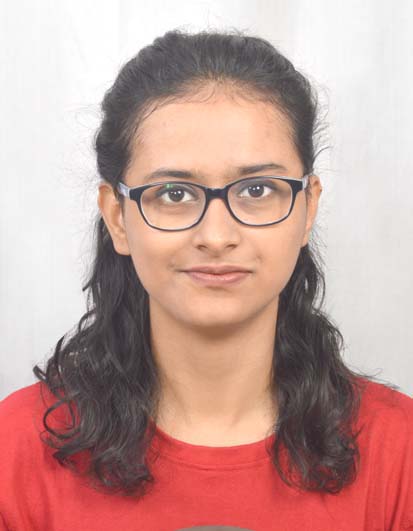
Ankita Sanyal is a doctoral candidate at Centre for West Asian Studies, Jawaharlal Nehru University, New Delhi. She worked as a summer intern at National Human Rights Commission, New Delhi in 2014 and participated in Global Initiative for Academic Networks, lecture on “Jerusalem and Abrahamic Faiths throughout the Ages” (November 2016); ICSSR-sponsored workshop on “Research Methodology Workshop in Social Sciences” (February 2019); and workshop on “Second Intensive Course on Women’s Studies in Islam and Iran” at the University of Religions and Denominations, Qom, Iran (August 2019). She currently has many publications and has presented papers in national and international conferences. She received certificate on completion of Level Two Persian Language course. Her area of interest includes minority studies, gender studies, cultural studies, education, peace and conflict studies.
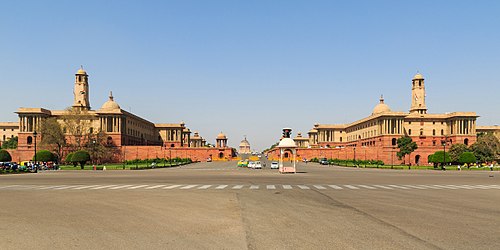
BILATERAL ISSUES BAHRAIN The CEO of LMRA highlights details on the new labour market reforms, .....
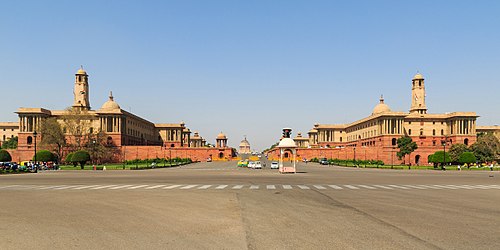
BILATERAL ISSUES EGYPT Raksha Mantri Shri Rajnath Singh to visit Egypt from September 19-20, 2.....
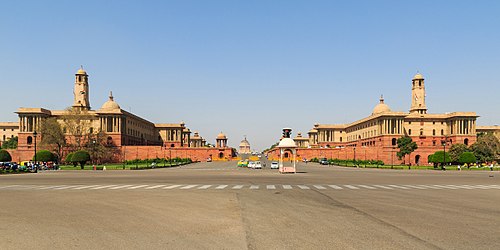
BILATERAL ISSUES IRAN Shri Sarbananda Sonowal visits Chabahar Port in Iran to Review work prog.....
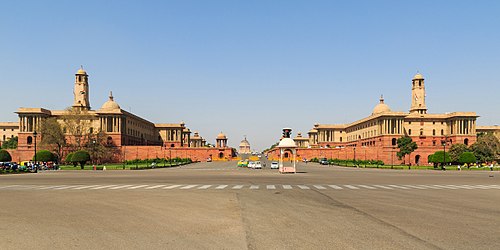
BILATERAL ISSUES BAHRAIN Deputy Chief of Naval Staff, India visits Kingdom of Bahrain, Manama,.....
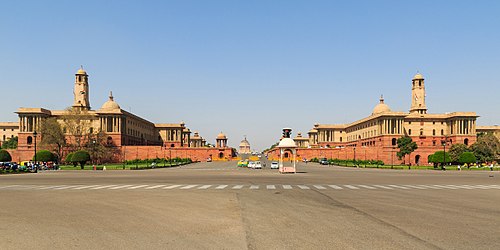
BILATERAL ISSUES BAHRAIN Buyer Seller Meet on Indian coffee between Indian exporters and Bahra.....
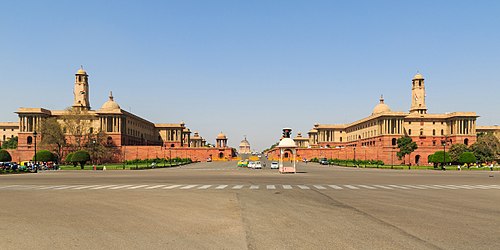
BILATERAL ISSUES BAHRAIN B2B meeting and Networking event between Bahraini & Indian IT com.....
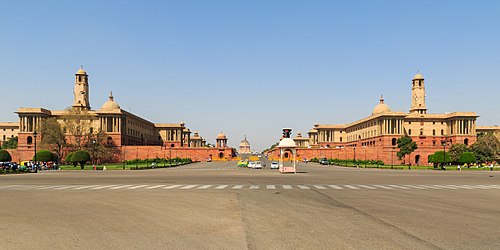
BILATERAL ISSUES OMAN Community Service Fortnight / Sewa Utsav’: ‘Celebration Thro.....
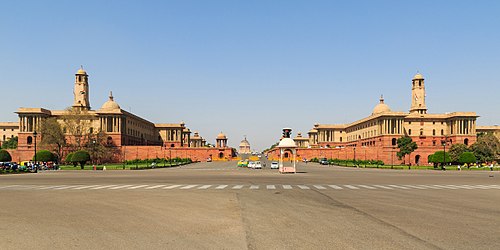
BILATERAL ISSUES BAHRAIN Virtual Buyer Seller Meet on agriculture and food products between In.....
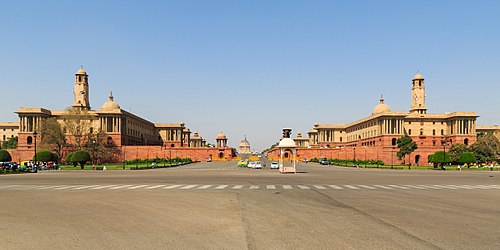
BILATERAL ISSUES BAHRAIN PM speaks on telephone with His Royal Highness Prince Salman bin Hama.....
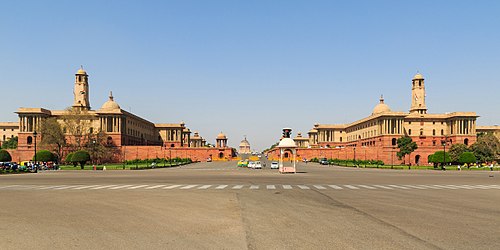
BILATERAL ISSUES ISRAEL Experts from India and Israel suggested expanding scope of India-Israe.....
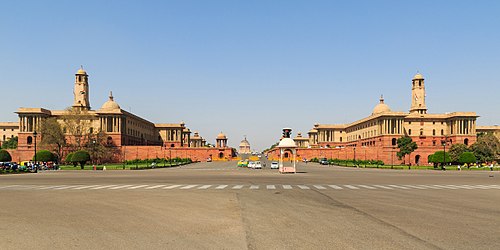
BILATERAL ISSUES BAHRAIN Press Release on virtual meeting between Minister for Education and S.....
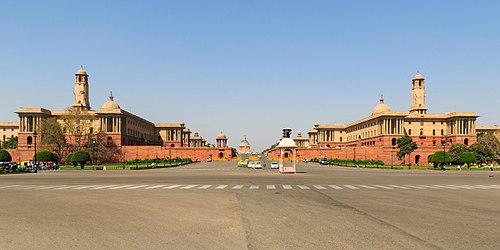
BILATERAL ISSUES BAHRAIN Ambassador’s visit to India Pavilion of Jewellery Arabia, Bahra.....
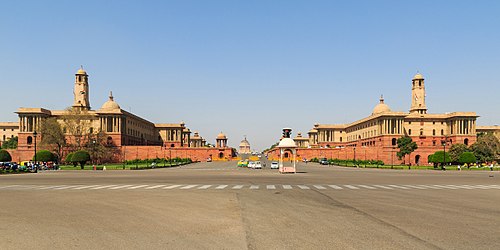
BILATERAL ISSUES BAHRAIN First consignment of GI tagged sweet dish Mihidana from West Bengal e.....
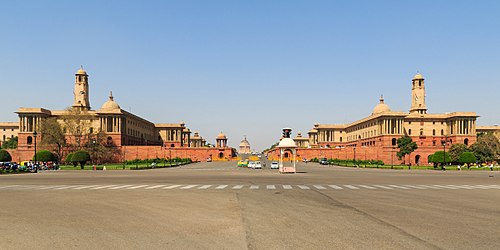
BILATERAL ISSUES ALGERIA Visit of Shri V. Muraleedharan, Minister of State for External Affair.....
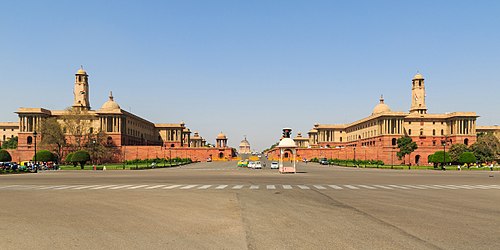
BILATERAL ISSUES ALGERIA INS TABAR undertook a bilateral Passage Exercise (PASSEX) with Algeri.....
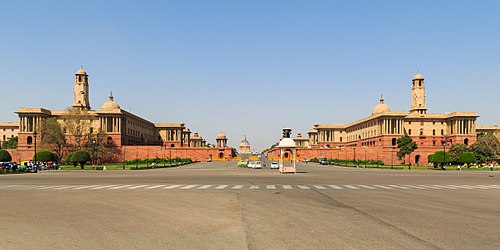
BILATERAL ISSUES BAHRAIN India expands mango export footprint to newer countries; GI certified.....
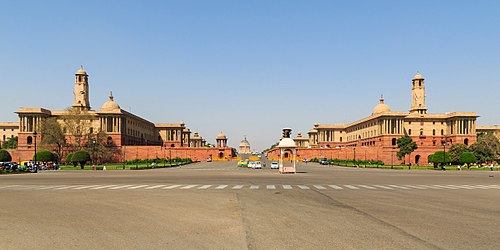
BILATERAL ISSUES ALGERIA APEDA in collaboration with Indian embassy organize virtual buyer sel.....
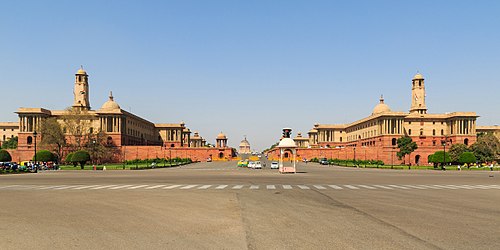
BILATERAL ISSUES EGYPT Procurement of 300,000 doses of Remdesivir from M/s EVA Pharma, Cairo, .....
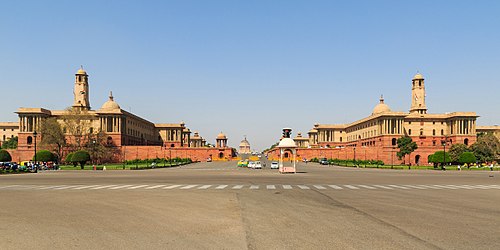
BILATERAL ISSUES BAHRAIN Third India-Bahrain High Joint Commission Meeting, New Delhi, 07 Apri.....
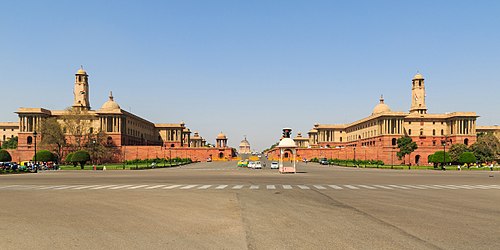
BILATERAL ISSUES BAHRAIN Indian Naval Ship Talwar’s Port Visit to Bahrain, Manama, 18 Ma.....
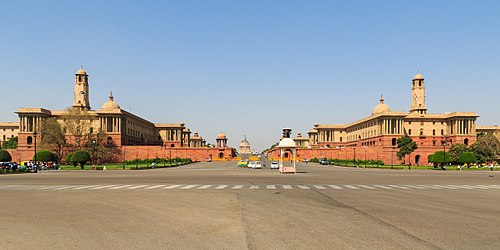
BILATERAL ISSUES IRAN Unstarred Question No.1475, Chabahar-Zaheden Railways Line, Lok Sabha, 1.....
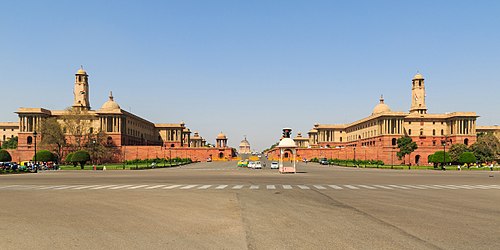
BILATERAL ISSUES IRAN Government of India strengthens cargo handling capacity of Chabahar Port.....
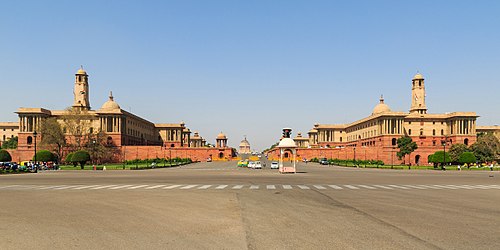
BILATERAL ISSUES BAHRAIN Warm greetings from Indian leadership on the occasion of Bahrain&rsqu.....
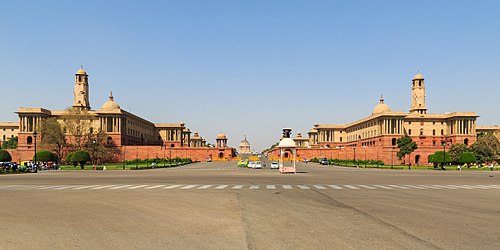
BILATERAL ISSUES BAHRAIN Prime Minister condoles the passing away of His Royal Highness Prince.....
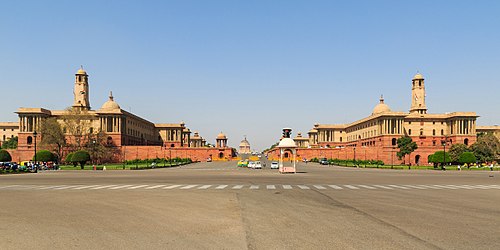
BILATERAL ISSUES BAHRAIN A B2B Webinar on Enhancing Opportunities in Pharmaceuticals and Alter.....
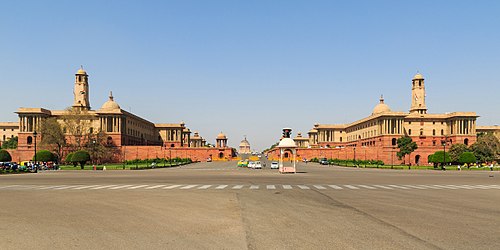
BILATERAL ISSUES IRAN Raksha Mantri Shri Rajnath Singh holds meeting with Iran's Minister .....
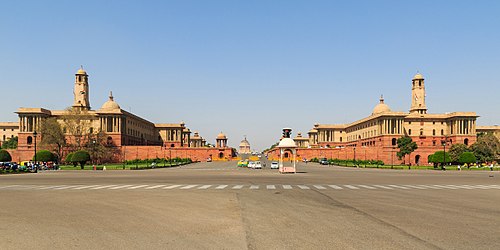
BILATERAL ISSUES ISRAEL Statement by the Official Spokesperson on the full normalisation of re.....
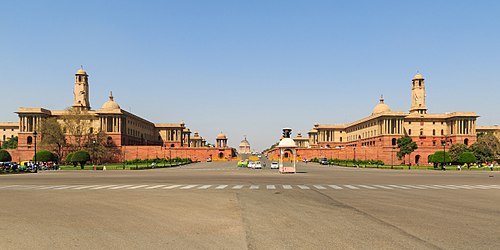
BILATERAL ISSUES ISRAEL Raksha Mantri Shri Rajnath Singh and Israeli Defence Minister telephon.....
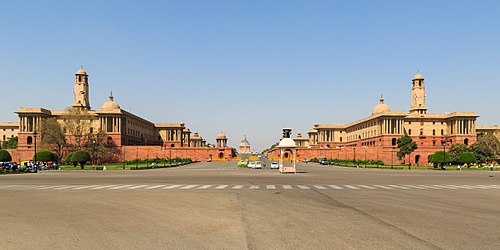
BILATERAL ISSUES IRAN Indian Navy Commences evacuation of citizens from Islamic Republic of Ir.....
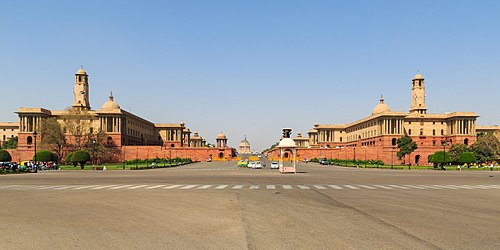
BILATERAL ISSUES EGYPT Phone call between Prime Minister Shri Narendra Modi and His Excellency.....
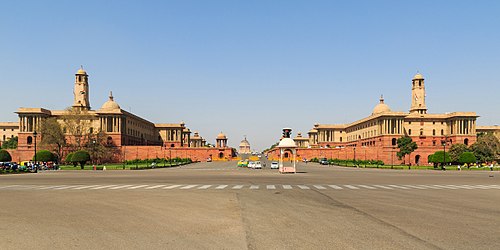
BILATERAL ISSUES BAHRAIN Telephone Conversation between PM and King of the Kingdom of Bahrain,.....
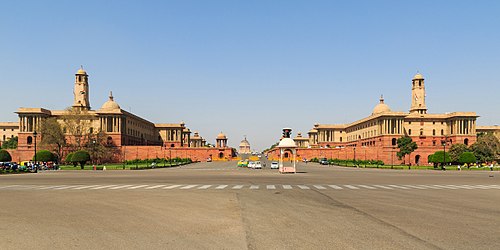
BILATERAL ISSUES IRAN IAF C-17 ‘Globemaster’ takes off for Iran, New Delhi, 9 Marc.....
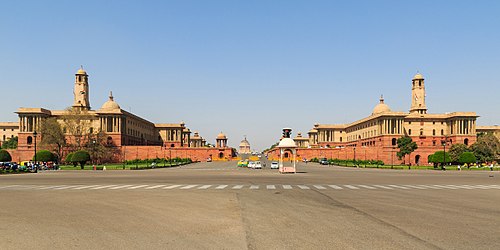
BILATERAL ISSUES IRAQ Travel Advisory for Indian Nationals travelling to Iraq, New Delhi, 19 F.....
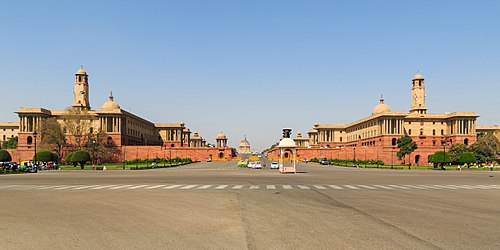
BILATERAL ISSUES EGYPT Photo exhibition on “Making of Indian Constitution and Life of Dr.....
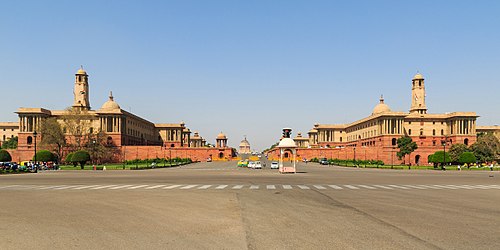
BILATERAL ISSUES EGYPT Prize Distribution Function of “Glimpses of India” Painting.....
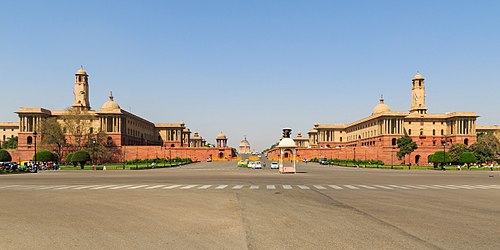
BILATERAL ISSUES EGYPT Consular Camp in Port Said on 22 November 2019, Cairo, 19 November 2019.....
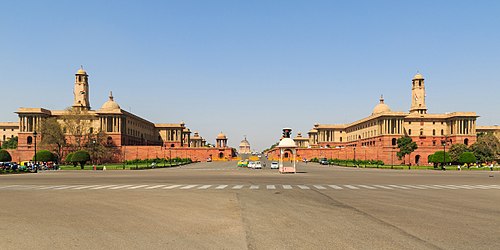
BILATERAL ISSUES JORDAN Meeting between Prime Minister and King of Jordan in Riyadh, Riyadh, 2.....
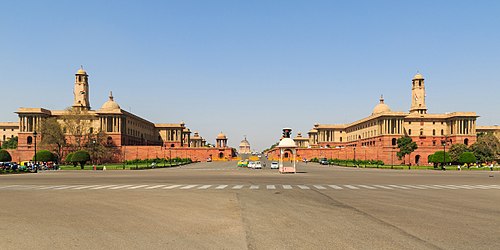
BILATERAL ISSUES a. IRAN Foreign Office Consultations between India and Iran, Tehran, 16 Septe.....
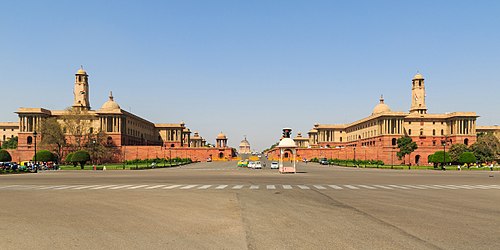
BILATERAL ISSUES a. BAHRAIN State Visits of Prime Minister to Bahrain (August 24-25, 2019), Ne.....
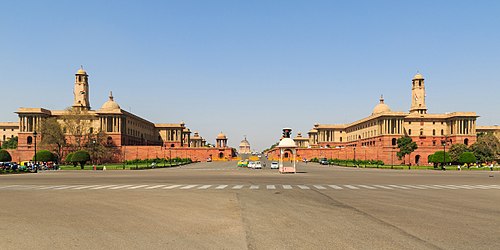
BILATERAL ISSUES BAHRAIN Cabinet approves Memorandum of Understanding between India and B.....
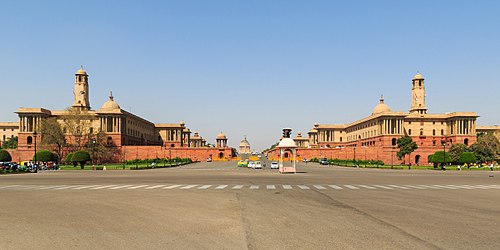
BILATERAL ISSUES IRAN UNSTARRED QUESTION No. 662 MPACT OF AMERICAN BAN ON CHABAHAR PORT, Rajya.....
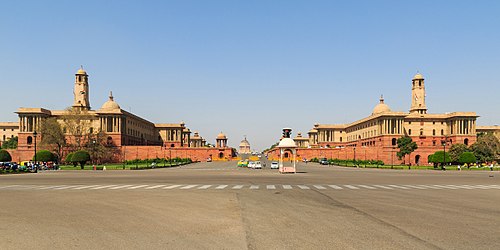
BILATERAL ISSUES IRAN 11th India Iran Joint Consular Committee Meeting (JCCM), New Delhi, 16 M.....
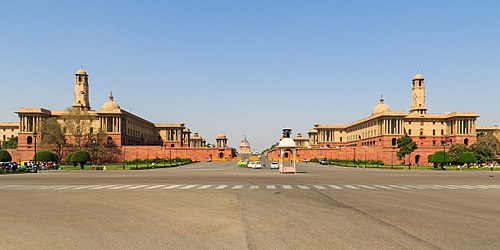
IRAN India extends relief assistance to Iran after recent floods, Tehran, 17 April 2019 In lin.....
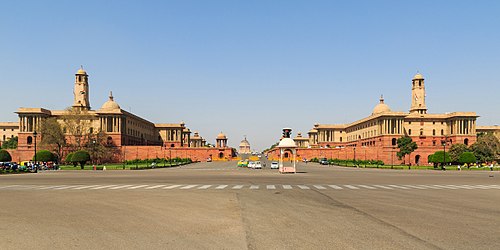
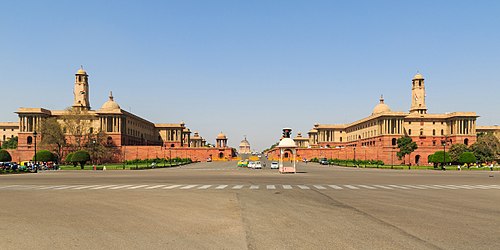
BILATERAL ISSUES EGYPT India condemns terrorist attacks in Egypt, New Delhi, 22 February 2019 .....
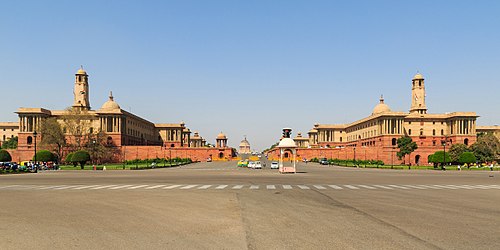
BILATERAL ISSUES ALGERIA Visit of Foreign Minister of Algeria to India (January 30-February 01.....
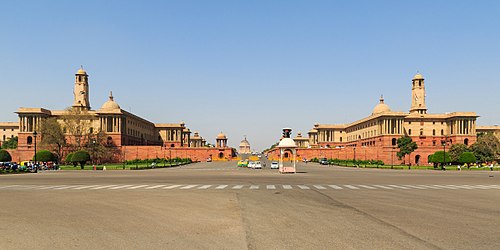
ALGERIA Cabinet approves Agreement between India and Algeria on Cooperation in the field of Space.....
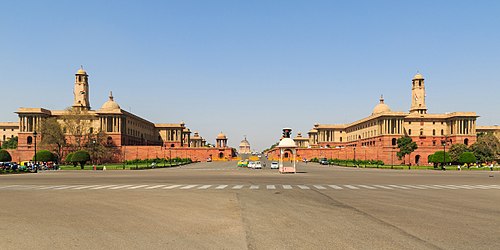
BILATERAL ISSUES IRAQ Jaipur Foot Camp in Karbala, Karbala, 21 November 2018 A 40-day Artif.....
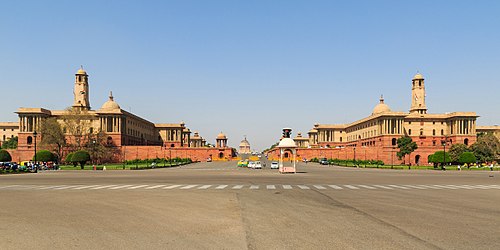
BILATERAL ISSUES KUWAIT Visit of External Affairs Minister to State of Qatar and State of Kuwa.....
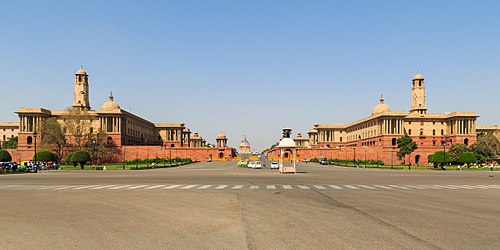
BILATERAL ISSUES EGYPT Cabinet approves MoU between India and Egypt on cooperation in the fiel.....
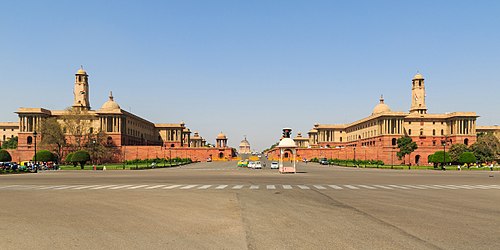
BILATERAL ISSUES BAHRAIN Question No. 3566, Unpaid Workers in Bahrain, Lok Sabha, New Delhi, 0.....
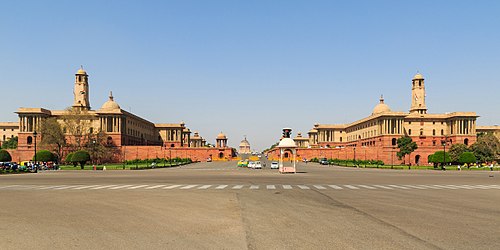
BILATERAL ISSUES BAHRAIN Visit of External Affairs Minister to Manama, Bahrain (July 14-15, 20.....
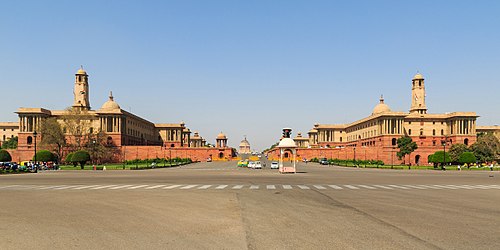
BILATERAL ISSUES BAHRAIN Cabinet approves MoU between India and Bahrain on cooperation in the .....
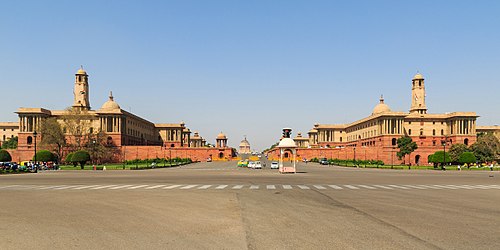
BILATERAL ISSUES IRAN External Affairs Minister’s meeting with Iranian Foreign Minister,.....
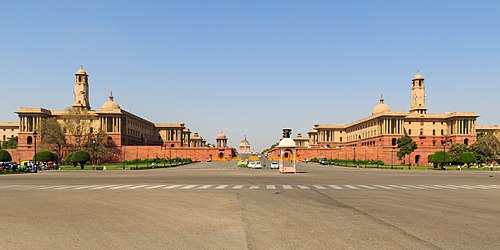
BILATERAL ISSUES IRAN Cabinet approves MoU between India and Iran on the establishment of an e.....
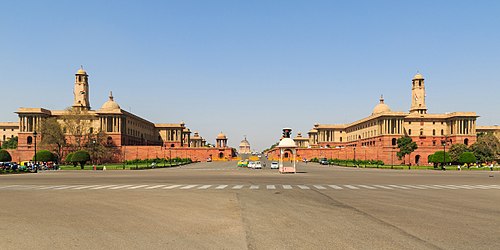
(Monthly Digest of Official Indian Statements on Middle East) BILATERAL ISSUES EGYPT Mr. Sa.....
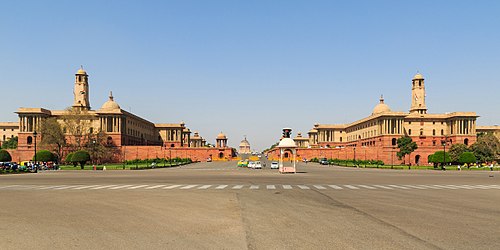
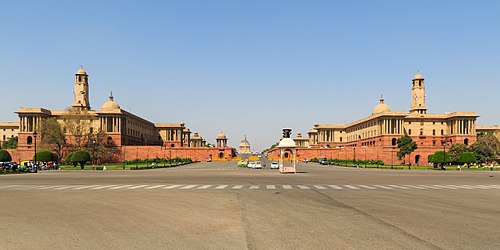
(Monthly Digest of Official Indian Statements on Middle East) BILATERAL ISSUES IRAN Launch .....
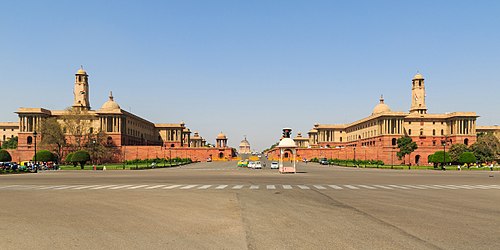
(Monthly Digest of Official Indian Statements on Middle East) BILATERAL ISSUES &.....
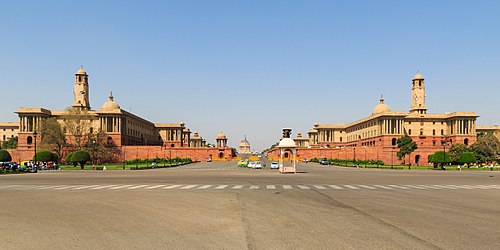
BILATERAL ISSUES a. EGYPT 1. H.E. Col. Rajyavardhan Singh Rathore, Minister of State for Youth.....
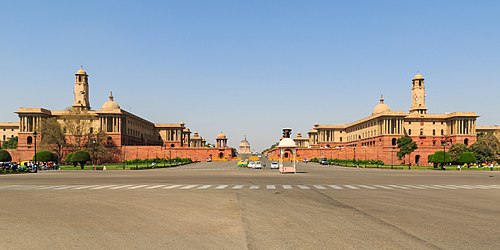
BILATERAL ISSUES IRAN 1. 6th Meeting of Joint Committee on Ports and Maritime Cooperation.....
